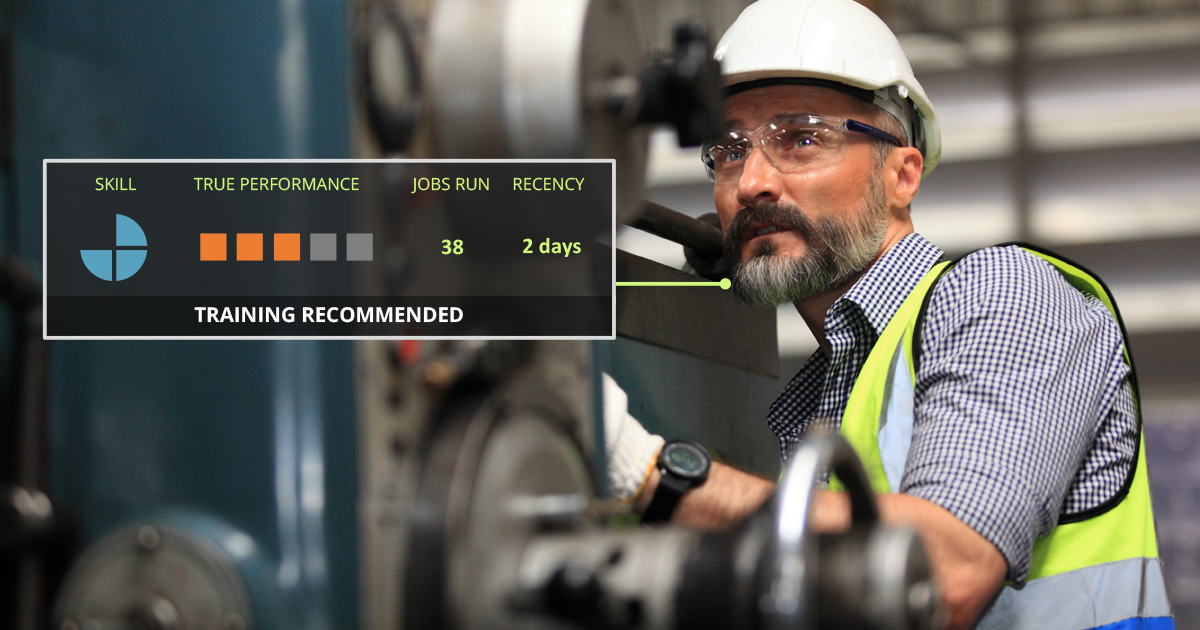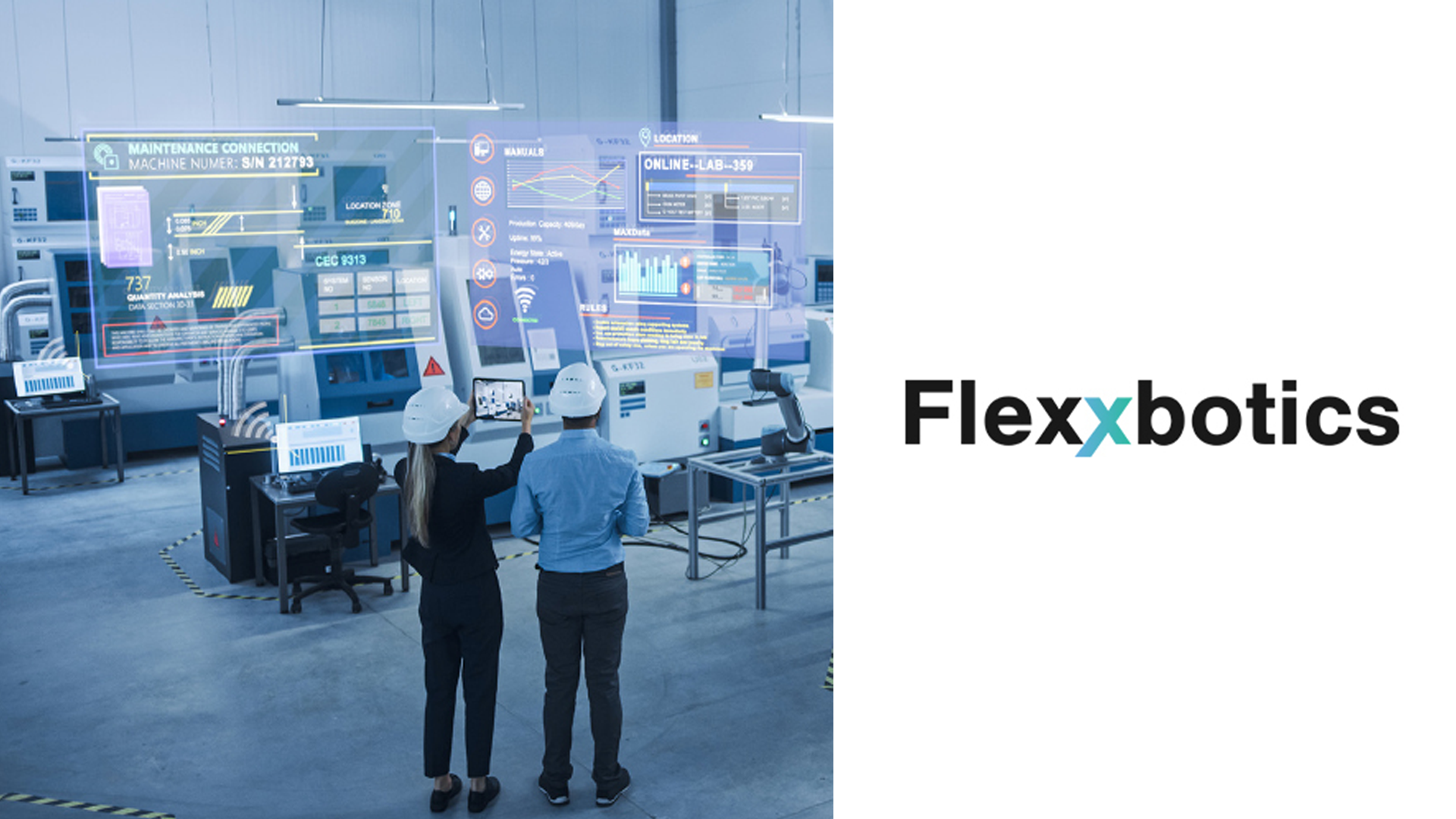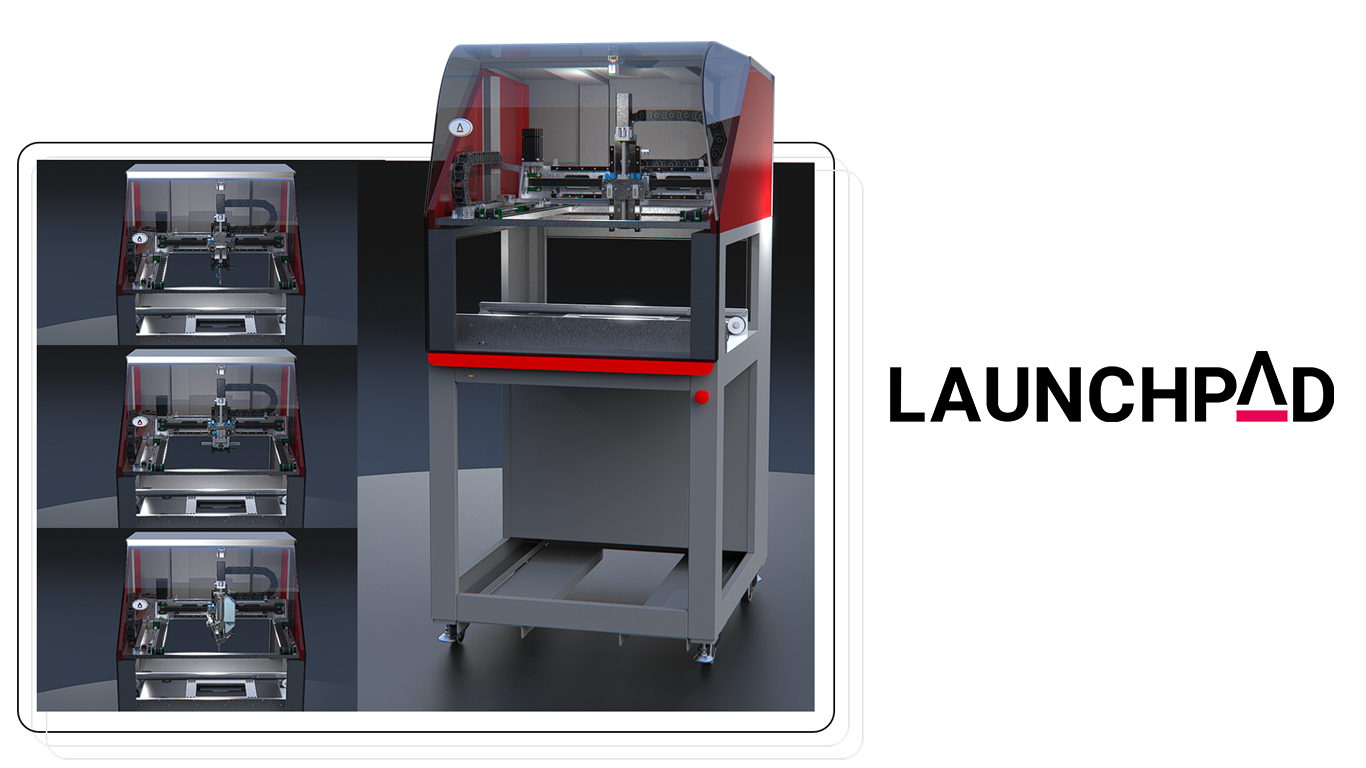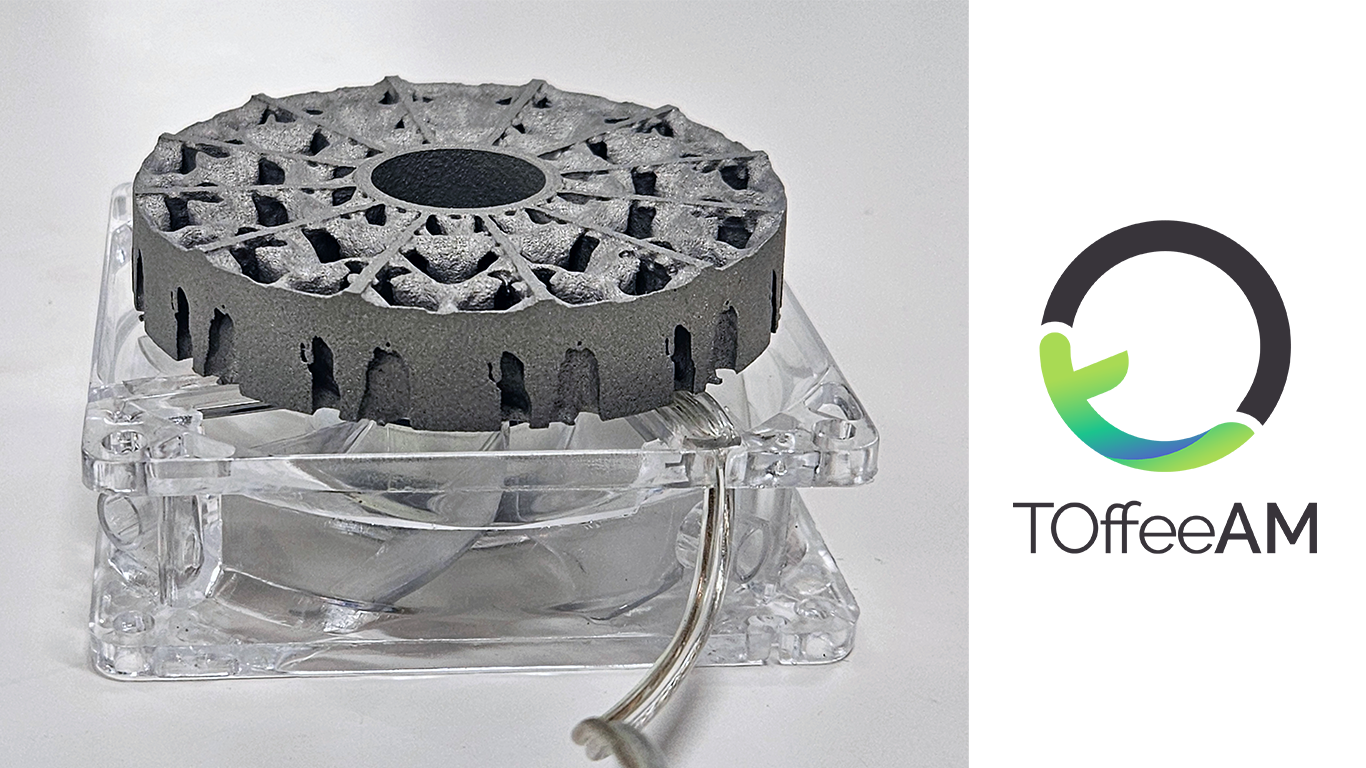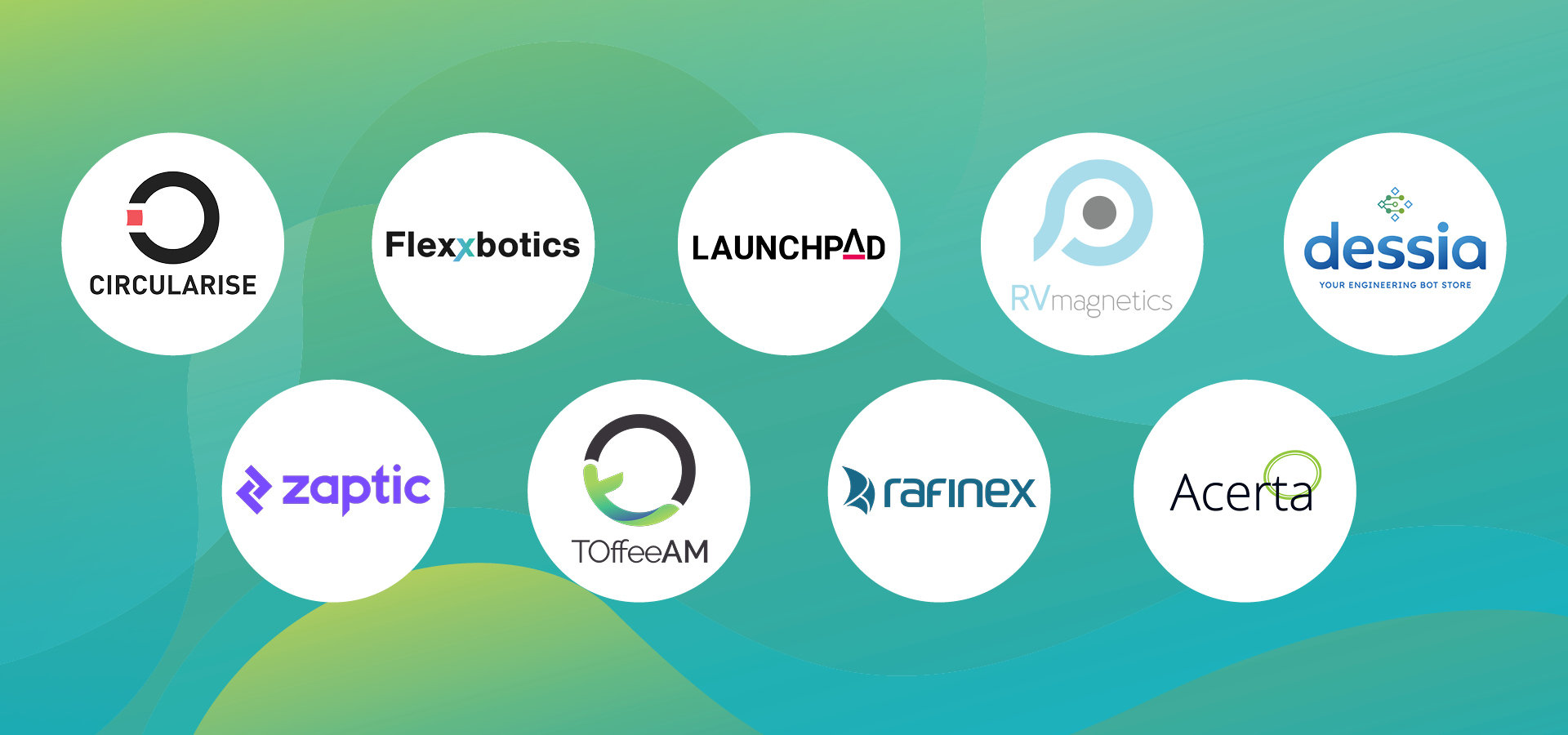Insights
Augmentir x ETQ: Empowering factory frontlines with quality management solutions
The mission of Augmentir is “to empower workers to do their best work”. A member of Sixth Sense’s second cohort, it is the world’s leading connected worker solution provider. We sat down with the company’s Vice President of Strategic Operations, Chris Kuntz, to hear more about the landmark partnership the company formed off the back of the Sixth Sense programme with ETQ – a part of Hexagon and leader in enterprise quality management solutions. Read on to find out more about how this partnership came about, as well as what the future holds for the industry-leading duo as they join forces and enter the market together, with their unified ETQ Reliance Connected Worker solution. Sixth Sense: Could you tell us more about your partnership with ETQ? How does it work? Chris Kuntz: ETQ is a world leader in enterprise quality management software, and we believe this partnership will significantly enhance quality, safety, and productivity within the manufacturing sector. The challenge with enterprise quality management today is that is it too often disconnected from the actual manufacturing execution on the frontline – the place where companies have the most touchpoints and the largest impact on the final product. These frontline workers are essentially human sensors on the shop floor – they witness quality and safety issue during the flow of work, ye the process for resolving these issues is very manual and time contusing due to the disconnected nature of frontline work today. This situation is further challenged by the fact that manufacturing is facing critical skilled labor shortages, as well as hiring and retention issues. This is where connected worker solutions come in. AI-based connected worker solutions like Augmentir help bridge the gap between the frontline and enterprise quality management and provide tools to help workers become more connected into quality processes, resulting in faster issue resolution and improved troubleshooting, while at the same time empowering them to perform optimally. Together with ETQ, we are essentially providing a closed-loop quality management ecosystem that enables manufacturers to break down silos and automate valuable factory-floor data to mitigate the impact of poor quality, while driving continuous improvement. Sixth Sense: Why is this partnership beneficial for Augmentir? CK: This partnership is beneficial because it allows us to address some of the most pressing issues in manufacturing related to the frontline workforce, while at the same time offer a solution that advances digitalisation in manufacturing. Our solution now provides a holistic connected quality solution that combines the power of data-driven actions and AI-powered insights to help bring frontline workers into the quality value chain and give them tools and knowledge they need to optimize safety and quality. This partnership, and the launch of the ETQ Reliance Connected Worker solution has the potential to provide manufacturing organizations to deploy next generation quality management solutions that leverage the latest in frontline operations technology. Sixth Sense: What do you hope to come from this partnership with ETQ? CK: The business relationship with ETQ is
Cohort Three Spotlight: Flexxbotics
Our mission? To enable robot-driven manufacturing for the future of autonomous industry. Who are we? We believe that robots are set to take centre stage in industrial environments, and we are at the forefront of enabling robot-driven manufacturing that includes autonomous process control – integrating robotics with intelligent automation in smart factories. With Flexxbotics, the robots go far beyond simply talking to the machines: they control and command the machines. Flexxbotics’ solution makes the robots smarter so that they… Can intelligently communicate and control smart factory machinery. Are compatible with many different types of factory machinery and inspection equipment. Enhance the efficiency, sustainability, and adaptability of manufacturing systems. Minimise waste, scrap and rework. Reduce energy consumption and improve safety. Streamline production workflows. Carry out automated inspections of parts processed. Carry out real-time autonomous process changes. Attain the highest quality levels in precision manufacturing. Ensure manufacturing processes are highly optimised and evolve toward greater sustainability. The lightbulb moment? While working at a global manufacturer implementing robots with automation equipment; our co-founder and CTO, Tyler Modelski, described the complexity he immediately encountered of integrating robots with machines and business systems like an anvil dropping on his head. The idea for Flexxbotics emerged from that moment. We knew that the rapid advancement of robotics would force a series of fundamental changes in factory automation scenarios – so, we set out to rethink the robots’ role. This led to the realisation that in order for fleets of robots to successfully run the factories of the future in fully automated “lights out” operation, they would need to be able to connect with and orchestrate the machinery. Why did you apply for Sixth Sense? Our collaboration with Hexagon in the Sixth Sense program provides us with the opportunity to work with and learn from the industry leader in smart factory solutions and coordinate measuring machine technology. We believe that the integration of our Flexxbotics solution with Hexagon’s cutting-edge inspection equipment has the potential to set a new standard in closed-loop autonomous process control – which is a critical prerequisite to achieving autonomous industry. Together we can further accelerate the adoption of robot-driven manufacturing. Where do we hope to be in five years’ time? Our goal for Flexxbotics is to become the global leader in SaaS/Hybrid solutions for robot-driven manufacturing. We envision our solutions setting the standard for intelligent robotics in manufacturing with Flexxbotics being integral to factories worldwide, driving new levels of efficiency, quality and sustainability. Which emerging technologies excite us? Humanoid robotics with artificial intelligence. Their potential to perform a wide range of tasks and process vast amounts of data will completely change the manufacturing landscape – significantly increasing productivity, adaptability and safety. For true autonomous manufacturing, these robots will need to communicate directly and securely with all different types of smart factory equipment – and our patent-pending FlexxCORE technology represents the key to enabling this.
Cohort Three Spotlight: Launchpad
Our mission? Manufacturing made easy – using AI and advanced simulation technologies to automate and revolutionise the future of manufacturing. Who are we? Launchpad is developing AI-powered automation for product assembly systems. We automate and streamline design, procurement and manufacturing processes – enhancing assembly precision and efficiency, addressing manufacturing labour shortages and reducing reliance on overseas production. Set up during the COVID-19 pandemic, we’ve had a distributed team from day one – but despite forming our working relationships online, our company culture is really strong. When we all met in person for the first time, it was like we’d known each other forever! Launchpad’s technology… Uses AI-driven, self-programming robots known as Digitools. Serves as an innovative and efficient automation solution. Reduces the need for human intervention in assembly programming. Cuts carbon emissions through manufacturing reshoring. Champions a sustainable, collaborative, and smart manufacturing future. Quickly adapts to different product designs – unlike traditional methods. Streamlines production and ensures consistent precision and quality in product assembly. The lightbulb moment? Founding Launchpad was driven by our firsthand experiences in the manufacturing sector. What were they? Repeatedly observing outdated technology and a lack of automation. We recognised the untapped potential of AI in revolutionising assembly processes, and this realisation led to the birth of Launchpad, which aims to combine advanced AI with practical manufacturing knowledge to create our innovative Digitools solution. Why did you apply for Sixth Sense? We believe that transformative change in manufacturing comes from strong alliances with like-minded entities. Our goal is to align with the program’s network, introducing our technologies to a broader range of customers and partners – enhancing our impact in the industry and accelerating the adoption of sustainable and efficient manufacturing practices on a larger scale. Where do we hope to be in five years? At the forefront of manufacturing innovation, with thousands of Digitools deployed worldwide. Our technology will be pivotal in designing superior products and enabling rapid, local product launches through flexible factories. Alongside our focus on mass customisation, this approach will increase customer value and significantly reduce inventory, setting a new industry standard for efficiency and innovation. The strategic investment we’ve recently secured from Lockheed Martin Ventures will help to scale and develop our innovative technology further. Which emerging technologies excite us? The potential of large language models and AI image generation – especially when integrated with advanced simulation techniques. These technologies hold immense promise for the manufacturing sector – enabling designers to bring their ideas to life. Our technology plays a crucial role in this ecosystem, validating that these innovative designs are feasible and efficiently scalable. This combination of AI-driven design and practical manufacturability is set to revolutionise the speed and responsiveness of manufacturing processes.
Cohort Three Spotlight: TOffeeAM
Who are we? Founded in 2019 – with eight nationalities represented – TOffeeAM stands for ‘Topology Optimisation For Fluids Engineering for Advanced Manufacturing.’ TOffeeAM’s cloud-based physics-driven software for manufacturing design helps engineers innovate and improve their designs while ensuring new products meet all manufacturing requirements. Put simply, physics-driven means that the software uses the principles from physics (usually through highly accurate simulation) to help create better designs or solve engineering problems. This helps to quickly produce components carefully optimised for their use, such as cooling electronics or EV batteries, more efficient aircraft engines, or more effective carbon capture. We help engineers to: ⏳ Streamline design approaches, which can traditionally be time-consuming. ♻️ Optimise designs to reduce waste and increase energy efficiency. 📈 Generate innovative designs and maximise performance. 🗺️ Overcome time and resource constraints to explore more design options. 💸 Minimise the cost of manufacturing by selecting components that are cost-effective in the long run. 🌎 Collaborate on designs, even if located in different regions. 💡 Produce cutting-edge products to stay ahead of the competition. ⚡ Push the boundaries of what’s possible in engineering design. Our mission? To help engineers go further, faster – enhancing their creative power. The lightbulb moment? Before TOffeeAM, engineers struggled to fully take advantage of the creative possibilities of additive manufacturing to optimise the performance and efficiency of components. TOffeeAM was created to fill this gap in the market. But that’s not the end of the story. As customers seek new ways of mass-producing better-performing designs at lower costs for more traditional manufacturing methods – the market demand for TOffeeAM continues to grow rapidly. We’ve risen to the challenge, with a new brand set to launch with evolved capabilities to meet these needs. Where do we hope to be in five years? Helping many organisations – from the most promising start-ups to the world’s leading companies – design more efficient, higher performing, lower lifetime cost products that make the world a better place. Which emerging technologies excite us? The progress with AI has been dramatic – the possibilities are unimaginable, and processes are being improved in every possible way, including in the field of manufacturing. Another one is Fusion Energy – the impact of which on manufacturing would be paradigm-shifting. It has the potential to vastly increase the supply of energy while greatly reducing costs, all while being sustainable and non-polluting.
Sixth Sense announces its Third Cohort
Sixth Sense has announced the nine manufacturing startups chosen for its third cohort at the Showcase Day event on the 20th of September. The selected companies were chosen from a highly competitive pool of applicants, distinguishing themselves with groundbreaking solutions addressing critical manufacturing challenges with a focus on sustainability and digital reality. The selected startups, which hail from seven countries, bring unique approaches to some of today's most critical manufacturing challenges, such as improving product sustainability, eliminating waste, capturing real-time data, automating design, and incorporating robots into production lines. The nine startups are: Acerta Analytics, Canada: Acerta Analytics provides advanced analytics solutions that leverage machine learning and artificial intelligence (ML/AI) to turn complex product data into actionable insights. The solution enables automakers and suppliers of complex vehicle parts to improve quality in manufacturing processes and support early defect detection. Circularise, Netherlands: Circularise offers digital product passports for end-to-end traceability and secure data exchange in industrial supply chains. Their technology helps companies achieve transparency and sustainability by tracking the lifecycle of products and materials. Dessia, France: Dessia offers a platform featuring virtual "bots" that serve as companions to assist engineers in designing mechanical systems. These virtual assistants provide support and insights throughout the design process. Flexxbotics, Boston, US: Flexxbotics specializes in enabling high-mix automation-intensive manufacturers to create flexible next-generation machining environments. They utilize their breakthrough FlexxCORE™ technology to seamlessly connect and coordinate collaborative robots with existing automation equipment, IT systems, and personnel to deliver autonomous process control. Launchpad, Los Angeles, US: Launchpad utilizes AI and advanced simulation technologies to automate aspects of the design, procurement, and manufacturing process. They focus on concepts like mass customization, micro-factories, and software-defined robotics to create shorter supply chains, reduce waste, and deliver new features faster in the manufacturing industry. Rafinex, Luxembourg: Rafinex’s groundbreaking innovation is the AI stochastic topology optimization for safe, lightweight designs. This technology actively manages uncertainty and risks of real-life variability to create uniquely robust designs that remain safe even in off-design load conditions for application in safety-critical performance sectors such as aerospace, automotive, and tooling. RV Magnetics, Slovakia: RV Magnetics has developed the world's smallest passive sensor based on MicroWire technology. This sensor combines unique capabilities from electromechanics, electronics, chemistry, physics, applied magnetism, and industrial design, offering diverse applications. ToffeeAM, London, UK: ToffeeAM provides state-of-the-art multi-physics generative design software for engineering. Their mission is to empower engineers to optimize engineering components and systems efficiently, enabling them to go further and faster in their design processes. Zaptic, Manchester, UK: Zaptic provides job instruction and collaboration tools for frontline teams, along with a no-code toolkit designed to accelerate the digital transformation of daily operations. Their solutions help organizations streamline processes and improve communication among their frontline workers. These startups will embark on an intensive 16-week journey as part of the Sixth Sense program, collaborating closely with Hexagon to refine their offerings. As part of the Sixth Sense program, they will gain access to Hexagon's market insights, accumulated over decades of collaboration with industry-leading
Elaine Warburton OBE: Lessons from a lifetime of funding
As well as speaking to the Hexagon team and working with them to hone their products and pitches, the Sixth Sense cohort also gets to sit in on a number of fireside chats with seasoned professionals from the worlds of entrepreneurship and technology. One such person is Elaine Warburton OBE. A serial entrepreneur, she is founder and NED of QuantuMDx Group, founder and chair of ReadyGo Diagnostics and chair of Javelo Health. Her two founded companies are both delivering solutions to serious healthcare challenges such as Covid, cancer and TB. She has raised over £100m in funding, experiencing the good, the bad and the ugly of raising capital. Today, Elaine also acts as a program advisor to Sixth Sense. Here, she shares some of her top tips and experience of securing funding from over the years. 1.Pitch often “I did so much pitching – hundreds and hundreds over the last 15 years – because I'm a great believer that although someone may not be ready for you now, they will remember you if you had a good pitch.” 2. Always try and have enough money in the bank “I have learned that if you have very little funds in your bank account, you're in an extremely poor negotiating position. So, I try to keep at least six to nine months' money in the bank, preferably a year.” 3. Prepare to wait for payment “Revenue never comes in a timely manner. Despite the best will in the world, it takes at least three to nine months sometimes to come in. That needs to be factored into your budget certainly.” 4. Choose your board wisely “Don't be friends. Be really good mutual colleagues. Respect each other and also have a different skillset as well. Also remember that a board of very successful people will have egos to manage. I have had a huge amount of friction in some of the boards of my past.” 5. Specialist investors will understand your mission “I have had a lot of generalists as investors and often, while they were very nice, they simply didn’t understand about healthcare, how long things can take and the ethics involved. Meanwhile I have worked with specialist impact investors that have understood why we haven’t hit certain milestones and really understand the impact of what we are trying to do.” 6. Look for value-add investors “We were very lucky because we got access to value-add investors. Look for people who can open doors, people who can also follow on with more capital, people who can guide you when needed.” 7. Never, ever sign a personal guarantee “I once exited a business and thought my personal guarantees were cleared and my resignation as a director dealt with legally. Nine months later I got a knock at the door from liquidators telling me my old company was being wound up and I had to honour in full a personal guarantee over the premises lease. I was apparently the only director registered at Companies

